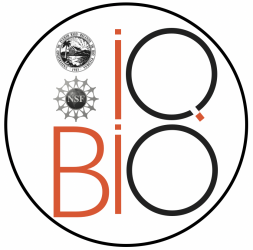García-Arrarás, Jose E. – Molecular Analysis of Organ Regeneration Dr. García-Arrarás’ lab focuses on the study of regeneration in a novel holothurian model system where the regeneration of various organs can be studied in an adult animal. His goal is to identify genes associated with regeneration of digestive and nervous systems through RNAseq for the early stages of regeneration and comparing gene expression profiles with those of the normal mesentery. In silico analyses include the characterization of gene signaling pathways and GO analyses of gene clusters associated with putative functions. Analyses include quantification of gene expression by RNAseq as well as validation of gene expression using qRT-PCR. The project integrates information that ranges from molecules to cells and tissues and provides multiple venues for undergraduate students to learn quantitative molecular biology, computational and bioinformatics techniques. Examples of projects that can be done by REU students include: (1) A comparison of gene expression profiles between early regenerating and late regenerating intestines and (2) Characterization of neural-specific genes by comparing intestinal vs radial nerve cord transcriptomes.
Mégret, Rémi – Image Analysis of Insect Behavior Dr. Mégret’s research focuses on image and video analysis with applications to interdisciplinary science projects. Current work aims at automating the analysis of insect behavior from video capture. It embraces a “Big Data” approach to produce new datasets to quantify the behavior of large numbers of individual honeybees and wild pollinators over long periods of time. Students will be involved in the software development of video analysis algorithms and their evaluation in the context of the biological study of insect behavior, such as the preferences in foraging behavior of honeybees or the measurement of wild pollinator population from videos collected in the field.
Ortiz-Zuazaga, Humberto G. – Bioinformatics of Gene Expression Dr. Ortiz-Zuazaga has developed novel methods of measuring gene expression from microarray and second-generation sequencing data and determining regulatory gene networks from this data. Through successfully established collaborations with scientists in biomedical research using Big Data, students will adapt probabilistic data structures to the task of detecting differential gene expression in de-novo RNA-seq experiments and use these and other data sets to model gene regulatory networks using bioinformatic and statistical methods.
Peterson, Esther – Gene Expression Networks in Estrogen-mediated Non-genomic Signaling Estrogen can elicit a rapid non-genomic signaling not only via the canonical ERalpha66 receptor, but with alternate estrogen receptors including an ERalpha variant, ERalpha36, and a G protein-coupled receptor, GPR30. The goal of the laboratory is to characterize the transcriptional and non-transcriptional effects of these receptors and the gene expression network involved in their cellular function. REU fellows in the Peterson lab will be involved in the generation and bioinformatic analyses of large datasets including but not limited to RNAseq, ChiPseq, large scale analysis of proteins and phospho-arrays using in vitro cell models. The fellows will also gather experience in working with cell culture, molecular subcloning, gene expression, Western blot and DNA/RNA molecular techniques. Dr. Peterson will guide the training, design and execution of this project in conjunction with lab members and current collaborators.
Restrepo, Carla –Large-scale structure, function, and dynamics of tropical mountains derived from remotely-sensed dataThe acquisition of remotely sensed data at a variety of spatial and times scales, is providing unprecedented opportunities for evaluating the impacts of global and regional changes, as well as the consequences of these changes for couple natural-human systems. The student IQ-Bio-REU student in the Restrepo lab will acquire skills in remote sensing, big data, and geographical information systems tools to test hypotheses and perform data analysis.
Rodriguez-Fernandez, Imilce A. – Identification of the genes in L. plantarum capable of activating the transcription factorNrf2/CncC in the fly intestine Dr. Rodriguez’s lab aims at understanding interactions between the gut microbiome and the intestinal epithelium. Lactobacillus species are commensal bacteria commonly found in the fly and mammalian small intestines and are generally considered probiotic agents. Studies using flies mono-associated with Lactobacillus plantarum (L. plantarum) have uncovered significant insights into host-microbial interactions. Recent findings have shed light onto how L.plantaruminteract with the gut epithelium without resulting in an activation of the immune response. It has been shown that L.plantarum can activate the transcription factor Nrf2/CncC in the host’s intestine and this could explain some of its beneficial effects. However, which genetic pathways in L. plantarum are needed for this activation are not known. IQ-Bio-REU students will work towards identifying genes in L.plantarum that are needed for the activation of the transcription factor Nrf2/CncC in the fly intestine. REU fellows will gather experience in working with the fruit fly Drosophila melanogaster, performing bacterial mutagenesis, and designing and performing genetic screenings in Drosophila and L.plantarum. Additionally, students will be able to learn fluorescence microscopy, bacterial culturing, handling and dissection of transgenic flies, and large-scale data analysis from genetic screens.
Rodriguez-Martinez, Jose Arcadio –DNA-binding preferences of transcription factors Transcription factors are sequence specific DNA-binding proteins that regulate gene expression by targeting specific regions of the genome. Determining a transcription factor’s intrinsic DNA-binding preferences is a critical step for decoding gene regulatory networks that control cell function. REU fellows in the Rodriguez-Martinez lab will engage in multiple aspects of the characterization of transcriptionfactors, including the generation of large datasets of transcription factor binding preferences. REU fellows will learn molecular cloning methods, protein expression/purification, DNA-binding assays, and the use of bioinformatics tools to integrate “big data” to identify putative binding sites across genomes. All this work is guided by the Rodriguez-Martinez lab mission to uncover the molecular mechanisms by which proteins and small molecules bind to DNA and RNA to interpret genetic information.
